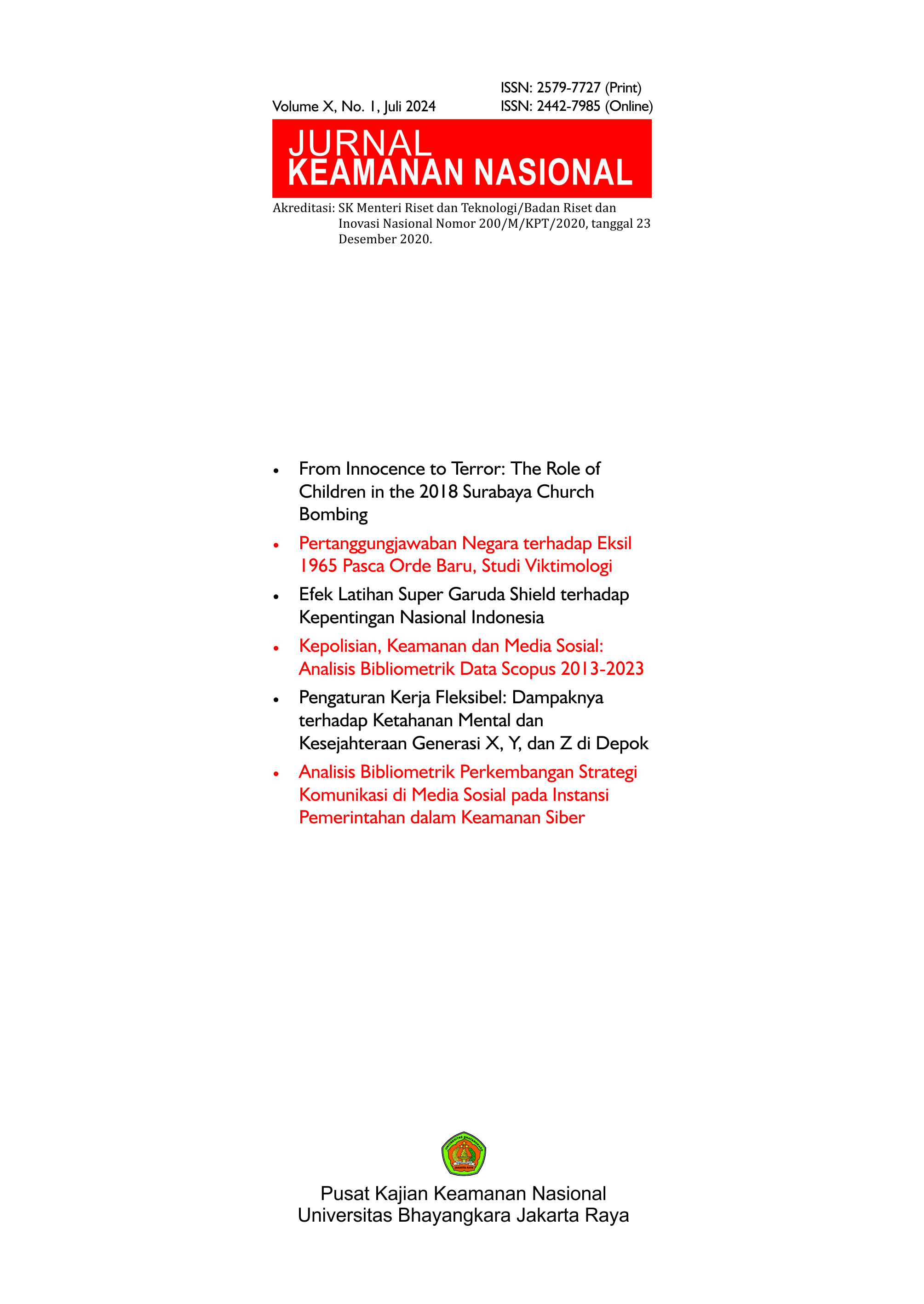Analisis Bibilometrik Perkembangan Strategi Komunikasi di Media Sosial Pada Instansi Pemerintahan Dalam Keamanan Siber
DOI:
https://doi.org/10.31599/pyd8mt08Abstract
The Internet has become one of the means for Government Institutions to provide fast and easy services. It also makes the public more actively monitor the progress of public services. The utilization of Social Media by government agencies is an innovation that maximizes technology. Furthermore, the use of the internet through Social Media requires strategies to cope with the advancements of the times as a means of communication. This research utilizes the Scopus database. The article analyzes the characteristics of publications, researchers, universities, and the contributions of countries in the field of Government Institutions conducting communication strategies through social media from 2013-2024 using bibliometric methods. This method is useful because it involves the quantitative analysis of a large number of literatures, using mathematical and statistical methods. The results show that there are 162 documents or articles with the United States, Spain, United Kingdom, China, Canada, Australia, Malaysia, Brazil, Indonesia, and Italy as the countries published in this field. Policy recommendations include the need to enhance the development of Government Institutions to manage their social media in a planned and measurable manner. Further research is expected to focus on public understanding of information provided by government agencies for long-term comprehensibility.
Downloads

Downloads
Published
Issue
Section
License
Please read and understand the copyright terms for submissions to this journal.
Copyright Notice
The Jurnal Keamanan Nasional is under the Creative Commons Attribution 4.0 International (CC-BY 4.0) License, according to which:
1) Authors retain copyright and grant the journal the right to first publication, with the work simultaneously licensed under the Creative Commons Attribution (CC-BY 4.0) that allows the sharing of articles published with the acknowledgement of authorship and the initial publication in this journal.
2) The authors are authorized to make additional contracts separately for distribution of the version of the work published in this journal (for example, publication in an institutional repository or as a chapter of the book), as long as there is recognition of authorship and initial publication in this journal.
3) Authors are authorized and encouraged to publish and distribute their work online (for example, in institutional repositories or on their personal pages) at any time before or during the editorial process, as it increases the impact and reference of the published work.












